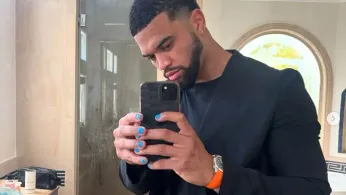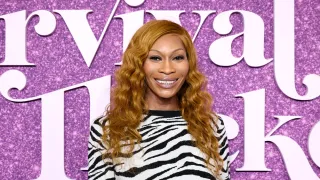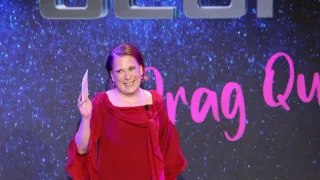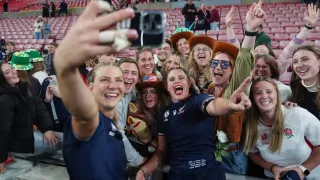
5 hours ago
Caleb Williams Uses Painted Fingernails to Spotlight Suicide Prevention, Sparking Conversation on Inclusivity and Mental Health
READ TIME: 3 MIN.
On September 8, 2025, during the highly anticipated Monday Night Football matchup between the Chicago Bears and the Minnesota Vikings, quarterback Caleb Williams drew widespread attention not just for his performance on the field, but for a powerful message painted on his fingernails: the suicide prevention ribbon, colors, and the number “988,” which is the national Suicide & Crisis Lifeline.
Williams’ use of nail art to highlight suicide prevention is not a new phenomenon. He first garnered national attention in 2022, when he played for USC and painted “988” on his fingernails for World Mental Health Day, as part of a unique partnership with organizations promoting the 988 Lifeline. Since joining the NFL, Williams has continued this advocacy through the Caleb Cares Foundation, focusing on anti-bullying, youth empowerment, and reducing the stigma around mental health. His Monday Night Football appearance was timed with September’s Suicide Prevention Month, amplifying the reach of his message far beyond the stadium.
Williams’ choice to paint his nails has not been without controversy. In the past, he has faced ridicule and criticism from some fans and commentators who view nail art as incongruent with traditional notions of masculinity in professional sports. Yet, his continued commitment to visible advocacy has spurred conversations about gender expression, stereotypes, and the importance of inclusive spaces within athletics.
For many LGBTQ+ fans and advocates, Williams’ actions resonate deeply. Painted nails, historically coded as feminine, have become a symbol of self-expression for people of all genders and identities, including those in the LGBTQ+ community. By displaying his painted nails on one of football’s biggest stages, Williams contributed to the normalization of diverse forms of gender expression and sent a message of acceptance and solidarity.
The reaction across social media and among advocacy groups was swift and largely supportive. Instagram and Twitter (now X) saw hashtags like #PaintedForPrevention and #988Lifeline trend as supporters shared images of their own painted nails in solidarity. “Visibility matters, especially in spaces that have historically been closed to LGBTQ+ people and gender non-conforming individuals,” wrote Pride Campaign, a leading LGBTQ+ advocacy group, in a statement.
However, some commentators and social media users continued to question whether such visible displays are appropriate in professional athletics, reflecting persistent challenges around gender stereotypes and inclusion. Williams, in post-game remarks, thanked his supporters and reiterated his commitment to “helping end the stigma around mental health and creating an environment where everyone—regardless of how they identify—feels seen and supported.”
Experts in both mental health and LGBTQ+ advocacy note the significance of Williams’ gesture. Dr. Alicia Greene, a clinical psychologist specializing in queer youth, explained, “When high-profile athletes like Caleb Williams use their visibility to talk openly about mental health and challenge gender norms, it has a ripple effect. It validates the experiences of people who feel marginalized and encourages them to seek support.”
Williams’ advocacy is part of a broader movement within sports to foster greater inclusivity and mental health awareness. The NFL and NFLPA have recently expanded their mental health programs, and several teams have partnered with LGBTQ+ organizations for Pride Night events and educational initiatives. While progress is ongoing, Williams’ visible leadership—through a simple act of painting his nails—serves as a reminder that athletes can be powerful agents for change both on and off the field.
For anyone experiencing mental health challenges, the 988 Suicide & Crisis Lifeline provides free, confidential support 24/7. By dialing or texting 988, individuals can connect with trained counselors who offer support and connect callers to resources in their local area. LGBTQ+ individuals seeking culturally competent care can also access resources and referral networks through organizations such as the Trevor Project and the Human Rights Campaign.






